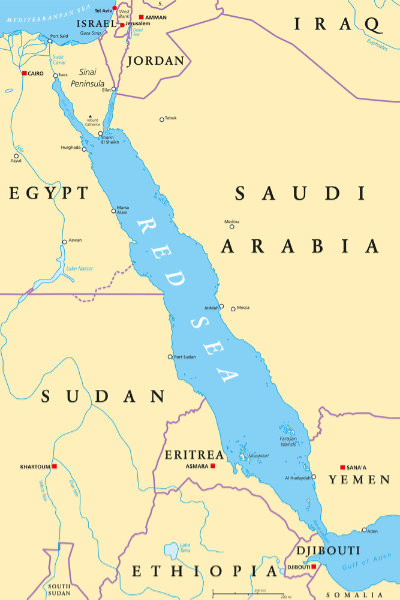Russia’s Deputy Energy Minister Sergei Mochalnikov and Yemen’s Oil and Minerals Minister Saeed al-Shamasi, co-chairmen of the Russian-Yemeni intergovernmental commission, have been discussed the trade and economic cooperation between the two countries on fuel and energy on the sidelines of the Russian Energy Week.
The two sides discussed interaction in industry, agriculture, and modernization of the current generation capacities, and reached an agreement to hold its next intergovernmental commission session in Yemen in 2025.
For Russia, Yemen is important because Moscow sees the Bab el-Mandeb Strait as an access route to the Horn of Africa, and the Red Sea where in Sudan, Russia announced its plans to open a naval base. Ideally, Moscow’s long-term objectives in Yemen are to use it as a potential base for expanding trade and security relations with the parts of eastern Africa.

Due to the political-military problems in Yemen, Russia’s trade turnover with Yemen has not changed significantly over the past decade at about US$250 million, although according to Russia’s Foreign Minister Sergey Lavrov, speaking in February this year, it did increase somewhat in 2023. Russia’s exports to Yemen consist mostly of food products and agricultural raw materials.
Russia does have some sympathy for the Houthi rebels in the country, who are backed by Iran. On the subject of the Houthi’s involvement in harassing shipping in the Red Sea, Lavrov had this to say:
“We believe that the escalation of tensions in the adjacent waters of the Red Sea and the Gulf of Aden resulting from the Yemeni Houthis firing at commercial vessels largely stemmed from the unprecedented escalation of the Palestinian-Israeli conflict and the nine-year crisis in Yemen. We do not condone the shelling of commercial vessels, regardless of the underlying motives. However, we cannot approve the aggressive actions of the United States and Britain against the territory of the Republic of Yemen, either. They have no international mandate in the form of a UN Security Council resolution to do so.”
There have been ongoing attempts despite the problems to create, and maintain a trade and investment platform. In 2005, the President of the Russian Chamber of Commerce and Industry, Evgeny Primakov, signed two agreements on cooperation between the chambers of commerce and industry of both countries, while several more fundamental documents were signed in economics and trade, including an agreement on the promotion and development of cooperation in trade, economics and industrial activities.
At present it is clear that Russian businesses see little interest in Yemen except for relatively limited opportunities trade in coffee, seafood, and a small selection of building supplies. The same holds true for Yemen’s oil industry, where production is low, and it is unclear as to the true extent of Yemeni reserves. What is known is that the county has a proven 3 billion barrels of oil reserves, ranking 29th in the world. These are equivalent to about 137 times its current annual consumption, reflecting both the inability of Yemen to use its resources and the low investment levels to assist it in doing so.
Given that there are high security costs associated with entering the Yemeni market, the possibility of the Russian oil and gas sector investing in the exploration of the Arabian country is quite low. The security situation in the country does not permit wide space for manoeuvrability, suggesting that Russia – along with Iran but without irritating Saudi Arabia – could at some point provide some influence in military assistance to help secure the situation. For example, Russia has recently agreed to provide military surveillance satellites to Mali and Niger. Yet this is a very difficult balancing act to manage – which is why Russia is taking a highly cautious approach.
That said, Yemen has profound strategic importance, and it should be noted that several BRICS countries run alongside the Red Sea and have essential control over it. These include Egypt, who operate the Suez Canal, Saudi Arabia, whose full BRICS membership is awaiting ratification, and Sudan, who have expressed an official interest in joining the group. Iran is a full BRICS member and is regionally influential, as are the UAE.
Further Reading
Houthi Red Sea Attacks: “We Will Not Target Russian or Chinese Shipping”

 Русский
Русский













